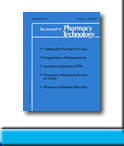 |
 |
MEXILETINE FOR DIABETIC
PERIPHERAL NEUROPATHY
Lama H Nabulsi, Beth M McLendon,
and Thomas G Vondracek
To request full article click here.
OBJECTIVE: To evaluate the efficacy and safety of mexiletine for the treatment of painful diabetic peripheral neuropathy (DPN).
DATA SOURCES: English-language clinical studies and review articles involving human subjects were identified using MEDLINE (January 1966–January 1999).
DATA SYNTHESIS: Peripheral neuropathy is a common complication of diabetes. Tricyclic antidepressants are the agents of choice for treatment of symptomatic peripheral neuropathy. However, other therapies are necessary in patients who do not respond to tricyclic antidepressants, do not tolerate their adverse effects, or have a contraindication to their use. The use of mexiletine for DPN has been evaluated in four studies. Two studies concluded that mexiletine was significantly better than placebo as treatment for DPN; another showed no difference. In the fourth study, improvement with use of mexiletine was not demonstrated, but posthoc analysis showed benefits in certain subgroups of patients, including patients with stabbing or burning pain, heat sensation, or formication. All studies excluded patients with cardiac, renal, or hepatic disease; in addition, only one study assessed quality of life, which raises questions about the safety and clinical significance of the reported benefits of mexiletine therapy.
CONCLUSIONS: Four studies have evaluated the role of mexiletine in treating DPN. Although the results are not uniform, they suggest that mexiletine may be considered a potential alternative for patients unable to take tricyclic antidepressants. The long-term safety of mexiletine and its use in patients with renal, hepatic, or cardiac disease has not been established.
J Pharm Technol 2000;16:8-11.
To order the complete CE article click here.
To request full article click here.
|
|
|
||
|

